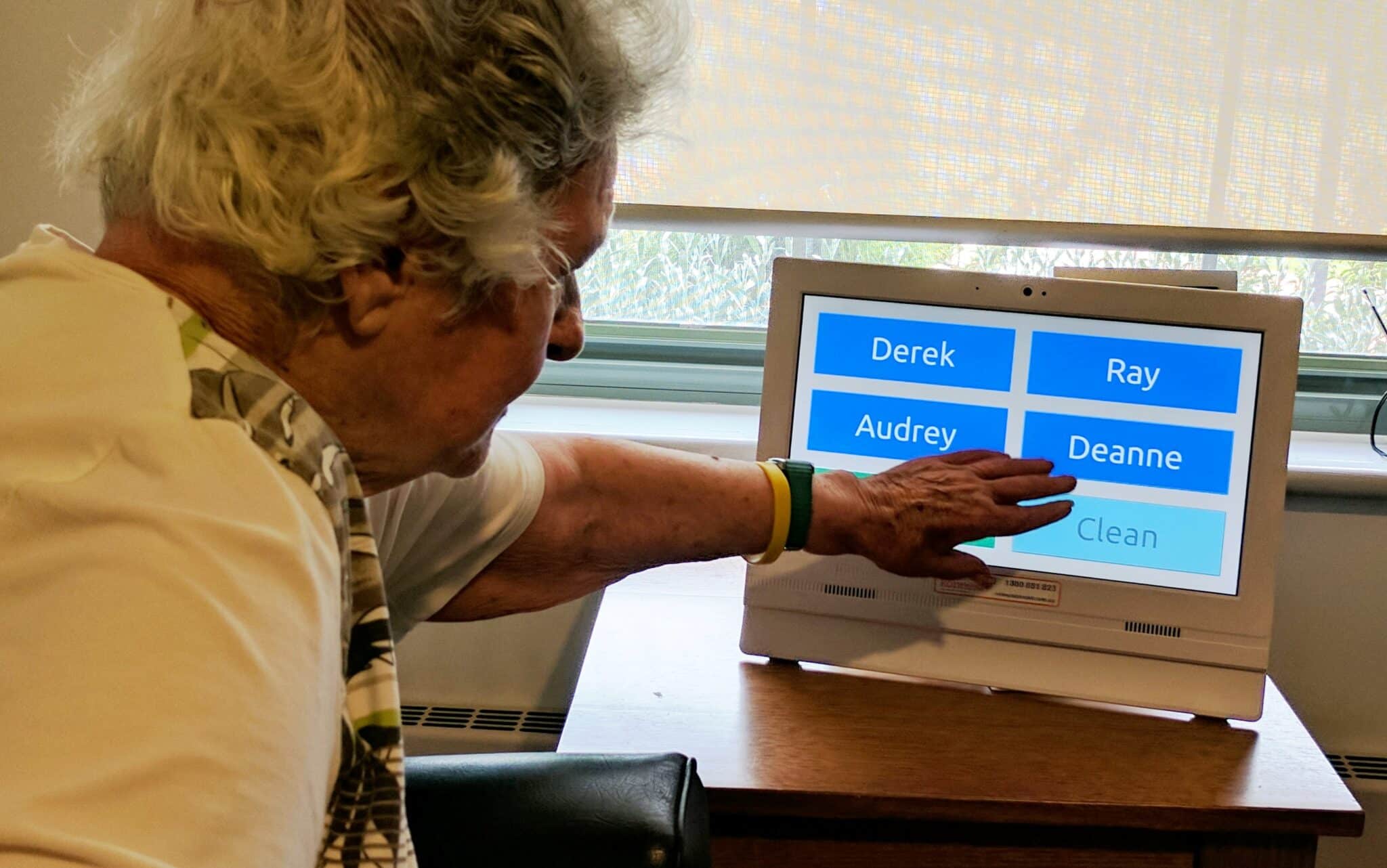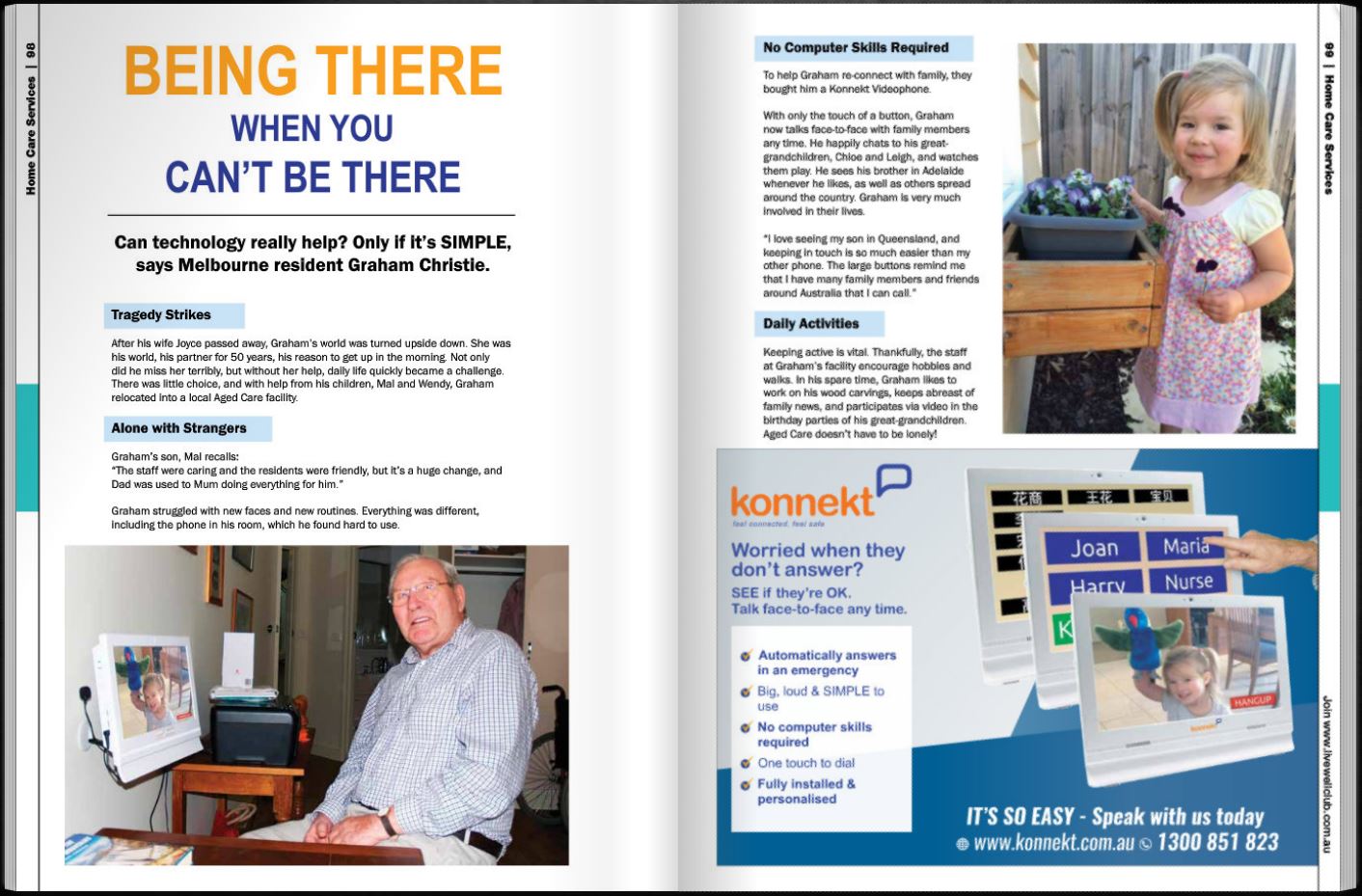Easy Communication Aid for Seniors with Dementia
Living with dementia can make everyday communication difficult and stressful. Missing calls, confusion with complex menus, and anxiety about unwanted calls are common problems.
Our dementia-friendly Videophone provides a simple, easy-to-use solution with large buttons, auto-answer, and emergency support—helping both users and caregivers stay connected safely and comfortably.
How Our Dementia Phone Makes Life Easier
Konnekt Videophone is designed for dementia provides more than communication—it supports peace of mind for both users and their families. Here’s why it’s a better choice for seniors with memory, hearing, and vision challenges:
- Large, simple buttons with familiar contact faces make it easy to call loved ones, preventing confusion.
- Auto-answer allows trusted contacts to check in without the user needing to press buttons, reducing missed calls.
- Emergency support with programmable call buttons ensures help is quickly accessible during critical situations.
- Loud, clear sound and compatibility with hearing aids improve communication for those with hearing loss.
- High-contrast screen aids users with low vision by making text and buttons easier to read.
- Caregiver Support: Allows visual check-ins and ensures critical calls are not missed, easing caregiver stress.
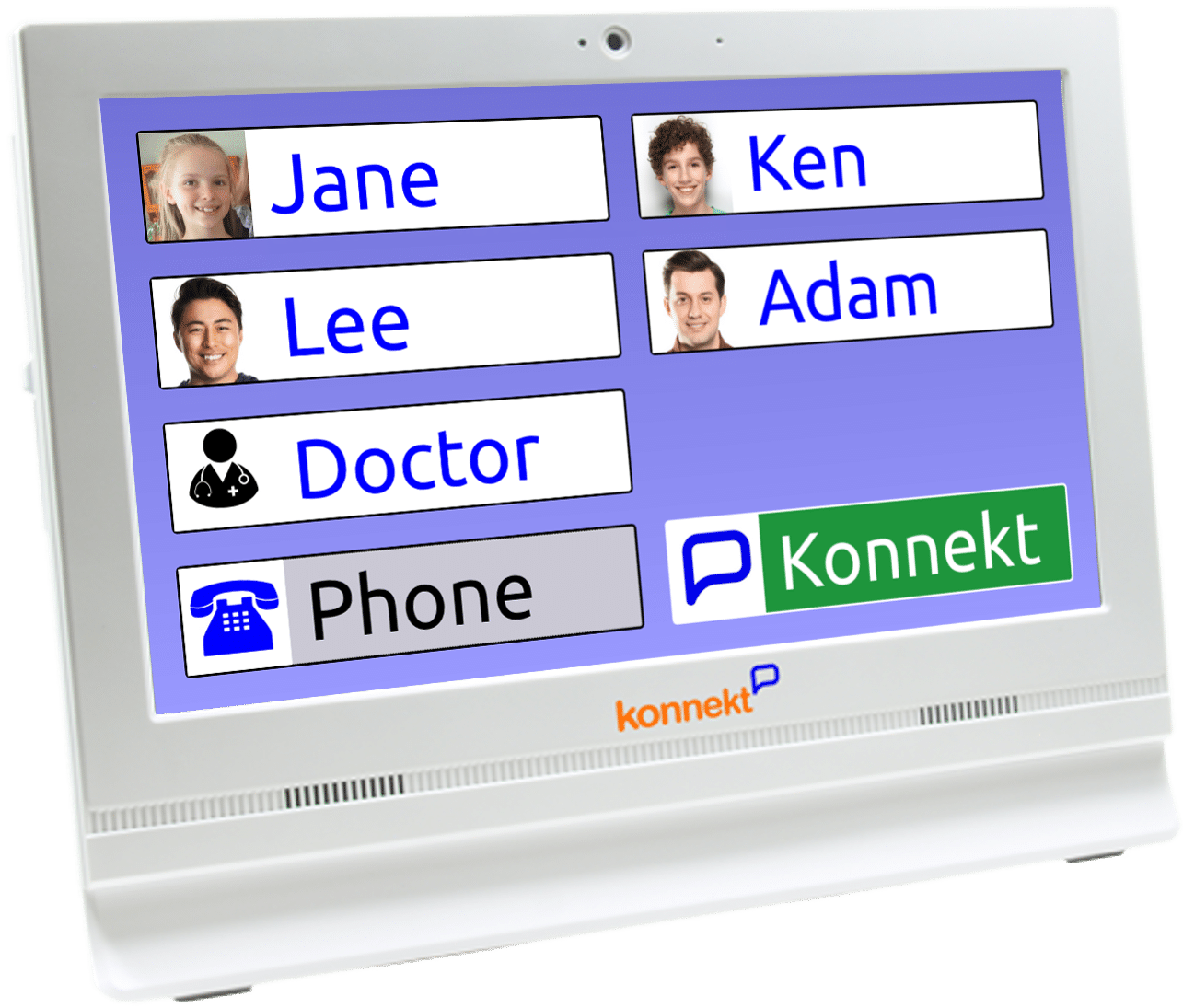
Effortless for Families and Caregivers
Konnekt handles everything—setup, personalisation, and call optimisation. Ongoing support and remote updates are included, so you never have to worry about tech issues.
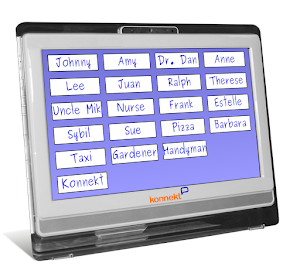
Dementia Care Guide
Dementia is a silent and devastating condition. Our 8-page guide offers practical support to help you care for your loved one with compassion. It includes advice on maintaining a healthy diet, regular exercise, managing blood pressure, addressing depression, and promoting mental stimulation and social engagement.
Available as a printable PDF in English and German or online in 49 languages.
Take the Dementia Carer Quiz

Do Seniors Tablets work?
Our market research found that many elders over 75 with a declining memory, and those with Alzheimer’s Disease or vascular dementia, have trouble using even the easiest tablets designed for seniors.
Available products have screens that are too small and volumes that are too low. The icons are baffling and hard to remember – especially for someone whose memory has had better days. The volume buttons are too easy to knock. Shaky or unsteady fingers are always creeping over the edge and accidentally changing settings or running unwanted apps. Most of all, the text is tiny – usually to make room for those icons. There are simply too many options. Menus were never part of Gran’s home telephone, so why does she need menus now?
Portability is great in theory. In practice, it results in lost, misplaced and dropped devices. Devices that are taken to rooms where Wi-Fi is poor and ringing can’t be heard.
Most manufacturers cram seniors tablets full of features. Features that Grandma probably doesn’t need, such as email, weather maps and texting. Most 80-year-olds want one thing more than anything else: Staying connected, face-to-face, with family and friends… and perhaps, if it’s extremely easy, to see and talk about photos of their grandkids.
A survey of the elderly showed that 80% are willing to try video calling. How hard can it be?
Seniors struggle to use these seniors tablets, and end up feeling frustrated.
We call these top-drawer fillers. They end up in the top drawer, along with other unused gadgets!
As seen on TV, with Carol O’Halloran
Medical studies: Hear how video conversation can help dementia
Dementia study: Face-to-face conversation helps
Increased social interaction via daily face-to-face calls for 6 weeks were recently shown in an OHSU study to be a promising intervention for improving cognitive function. This is great news for family members unable to travel, too busy or too far away to visit often.
Is your parent suffering from, or at risk of dementia? A user-friendly interface is key to acceptance and adherence. If it’s easy, they’ll keep using it.
As seen in medical journals and news articles
Our Videophone featured in Over 50’s Guide
A national guide distributed by medical clinics, pharmacies and others. This article featured the story of our customer Graham whose wife had passed away recently. He was moved into a nursing home feeling lonely and sinking into depression. Videophone changed his life.

Social isolation and Depression risk
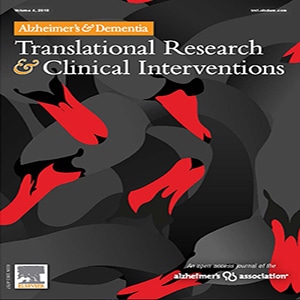
Increased Cognitive Function
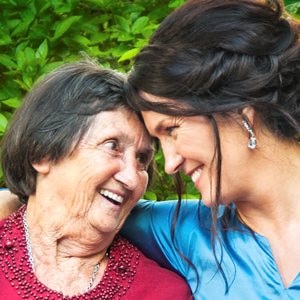
Videophone helps save a life
“Konnekt video phone assisted me to visualize my Mum, I am pretty certain my Mum would have died a very horrible death in her unit within 24-48 hours.”
— Cheryl Kolff, daughter, Australia
Cheryl was overseas in the USA. Her mother Judy was suffering from a life-threatening bowel obstruction, but dementia prevented her from verbalizing her pain. Konnekt Videophone with auto-answer allowed Cheryl to see how unwell her Mum was, comfort her, and talk face-to-face with paramedics.

Dehydration kills
Now, Sandy can monitor and encourage her mom to drink water.
“Mom’s dementia limits her comprehension. She can’t pick up a phone or push a button without someone telling her to do so. Konnekt has solved that problem with it’s auto-answer capability for selected contacts. Now, her face just lights up when she gets a call. Best of all, adequate water consumption is no longer a huge challenge.”
— Sandy Flohrs, daughter, MN USA
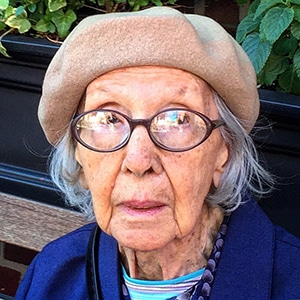
Already seeing improvements
“I am delighted with your innovative product and very grateful for the improvements that I am already seeing in Norma (she has significant cognitive decline).”
— Amanda Hill, daughter, Malaysia
Try it for 30 days. No risk.
Don’t wait for the memory loss to get worse.
Fill in the form to find out whether you qualify for a no-obligation trial.
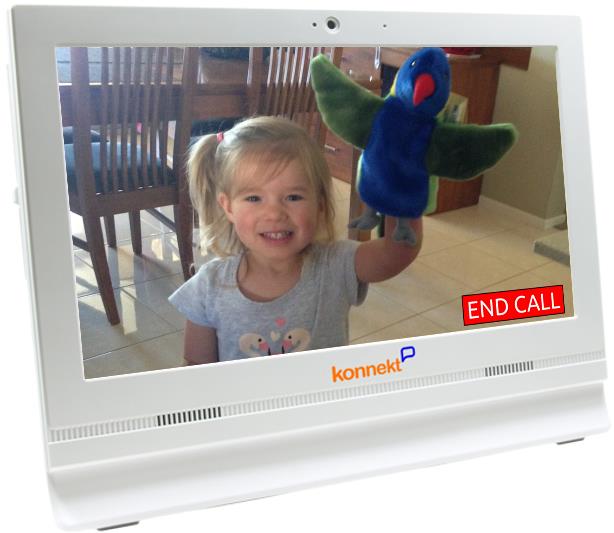
Check out our Dementia Related Articles
Available worldwide
Konnekt has sales/support partners across Australia / Asia, Europe, United Kingdom, North America and New Zealand.

